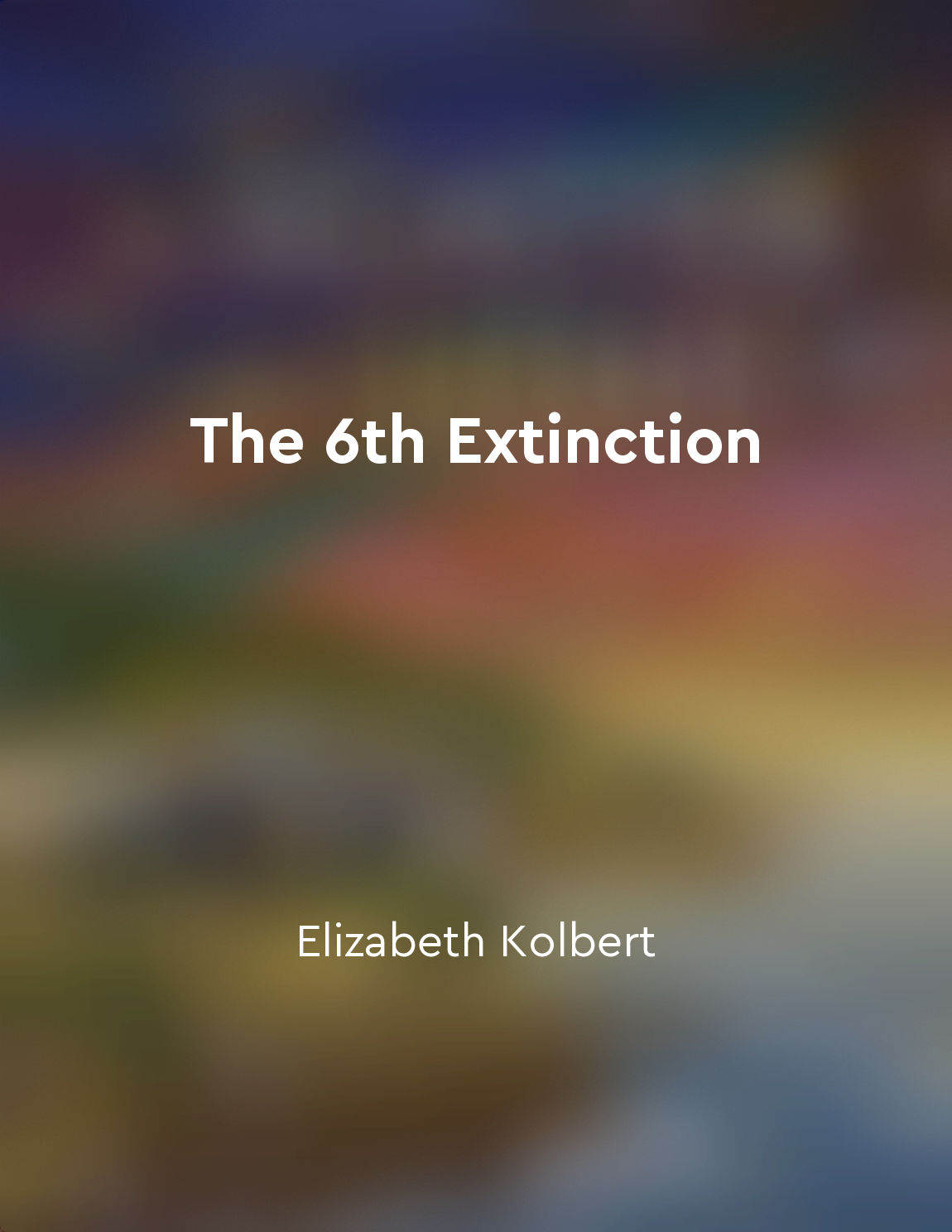Audio available in app
Humans are the primary cause of the sixth mass extinction from "summary" of The Sixth Extinction (10th Anniversary Edition) by Elizabeth Kolbert
In the annals of life on Earth, there have been five mass extinctions, events that wiped out the majority of species living at the time. Each of these extinctions was triggered by natural events such as volcanic eruptions or asteroid impacts. However, in the modern era, a new force has emerged as the primary driver of extinction: humans. Through activities such as deforestation, pollution, overhunting, and climate change, humans have altered ecosystems around the world at an unprecedented pace. Species that once thrived in their natural habitats are now struggling to survive in the face of human-induced changes. The rate of extinction today is estimated to be 100 to 1,000 times higher than the natural background rate. As our population grows and our demand for resources increases, we continue to encroach on the habitats of other species, pushing them to the brink of extinction. In many cases, species are unable to adapt quickly enough to survive in the rapidly changing environment created by human activity. The consequences of these extinctions are far-reaching, affecting not only the species themselves but also the ecosystems they are a part of. Despite the grim outlook, there is still hope for the future. By recognizing our role in driving the sixth mass extinction, we can take steps to mitigate its impact. Conservation efforts, sustainable practices, and policies that prioritize the protection of biodiversity are essential in preserving the rich tapestry of life on Earth. Only by working together can we ensure that future generations inherit a world teeming with diverse and thriving species.Similar Posts

Educate for climate awareness
To educate for climate awareness is to empower individuals with the knowledge and understanding of the climate crisis and its i...
Respect for others is a fundamental principle
Respect for others is a fundamental principle. It is the cornerstone of any civilized society, the bedrock upon which all human...
Communities play a key role
Communities are the heart and soul of society. They are the places where people come together, share their experiences, and wor...
Vision for a more sustainable and equitable future
The vision for a more sustainable and equitable future is a guiding principle that shapes the decisions and actions of individu...
Biodiversity is crucial for the health of the planet
The variety of life on Earth is a fundamental aspect of our planet's health. Biodiversity encompasses all living organisms, fro...

The history of mass extinctions can provide insights into the present crisis
The history of mass extinctions offers a lens through which we can view the current ecological crisis. By examining past events...
Science offers hope for future
The idea that science can provide hope for the future is not just wishful thinking or blind optimism. It is based on the tangib...
